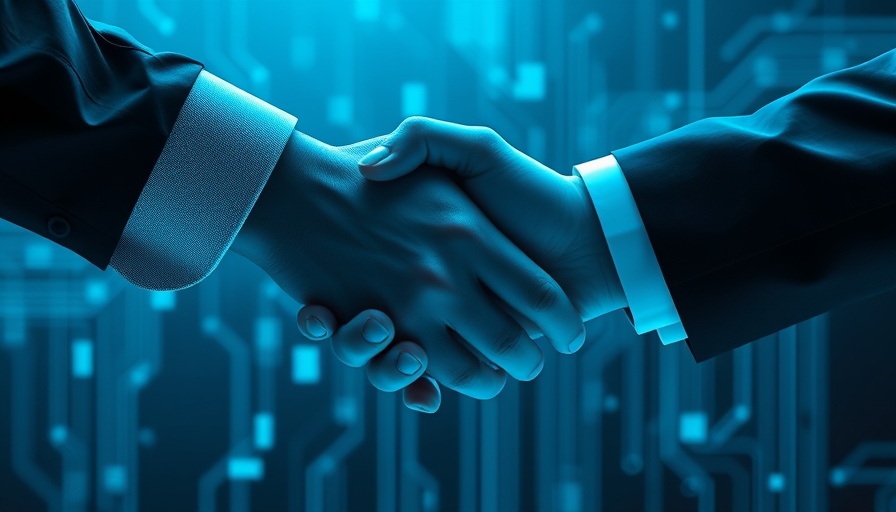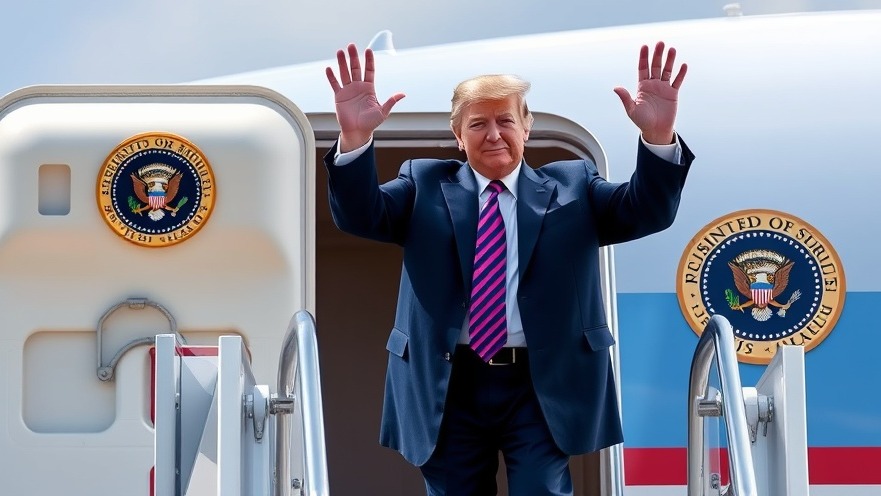
Samsung and Tesla: A Game-Changing Partnership
The tech world is buzzing with excitement following Samsung Electronics' monumental announcement of a USD 16.5 billion deal to produce Tesla's next-generation AI chips, known as AI6. This strategic alliance will utilize Samsung's newly built chip plant in Taylor, Texas, a facility that is accelerating towards mass production slated for the second half of 2026. Elon Musk, the ever-vocal CEO of Tesla, confirmed this pivotal partnership through a recent post on X (formerly Twitter), marking a significant turning point for both companies. This collaboration not only solidifies Tesla's ambition in AI but also provides a much-needed boost to Samsung's struggling foundry business.
What Does This Means for Samsung's Future?
Samsung's latest deal is monumental, accounting for 7.6% of the company’s projected revenue for 2024. This comes at a time when Samsung's foundry division has been facing substantial losses, highlighting the importance of this contract in restoring investor confidence. The contract is a crucial vote of confidence in Samsung's technology and could serve as a springboard for further partnerships with other leading technology firms. Indeed, analysts suggest this might encourage more clients to explore Samsung's 2-nanometer process technology, possibly initiating a series of new contracts that could reshape the semiconductor landscape.
A Closer Look at the AI Chip Landscape
The AI chip market is rapidly evolving. Currently, Samsung manufactures Tesla's AI4 chips, whereas TSMC has taken the mantle for the AI5 chips. The distinction of having both developmental tiers will be vital for Samsung as it seeks to position itself more competitively against TSMC, which commands approximately 67.6% of the global foundry market. Despite the intense competition, industry experts express optimism regarding Samsung's capability to innovate and potentially close the technology gap.
Implications for the Tech Industry
This deal signals larger implications for the semiconductor industry as a whole. As AI technologies become more integrated into various sectors—from automotive to healthcare—the demand for high-performance chips continues to rise. Tesla's push toward developing specialized AI chips underscores the growing recognition of AI’s transformative power across industries. If Samsung can leverage this contract to enhance its reputation, it will likely attract further high-profile clients.
Overall Market Reaction
The announcement has already had a positive effect on Samsung’s stock, which rose by 6.83% following the news, closing above 70,000 won for the first time in nearly a year. This invigorated market response reflects a broader optimism surrounding the company’s strategic direction, positioning Samsung to weather its ongoing financial struggles.
The Vision Moving Forward
As Samsung ramps up the construction of its Taylor facility, the spotlight will be on how well it can execute this ambitious project. CEO Lee Jae-yong's dismissal of the idea to spin off the loss-making foundry division indicates a commitment to retaining this segment as a key part of the company’s identity—a move that aligns with long-term strategic objectives.
What Lies Ahead?
Elon Musk alluded that the USD 16.5 billion figure might only represent a starting point, hinting that the total contract value could expand over time. This fluidity suggests an evolving partnership with considerable potential for future growth. As both companies work together, the results may redefine not only the trajectory of their futures but also that of the tech industry as AI integration becomes paramount.
Conclusion: The Future of AI Innovation
Samsung's partnership with Tesla represents a significant leap into the future of AI innovation. Stalwarts of the tech industry are watching closely; will this collaboration set a new standard in semiconductor manufacturing? Only time will tell. Investors and tech enthusiasts alike should keep a keen eye on developments in the coming years as the partnership unfolds and its ripple effects potentially transform the landscape of technology as we know it.
 Add Element
Add Element  Add Row
Add Row 



Write A Comment